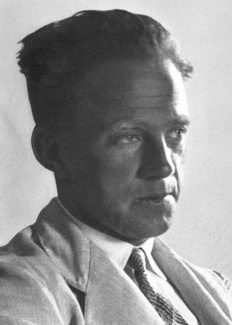1925

Werner Heisenberg was born on 5th December, 1901, at Würzburg. He was the son of Dr. August Heisenberg and his wife Annie Wecklein. His father later became Professor of the Middle and Modern Greek languages in the University of Munich. It was probably due to his influence that Heisenberg remarked, when the Japanese physicist Yukawa discovered the particle now known as the meson and the term “mesotron” was proposed for it, that the Greek word “mesos” has no “tr” in it, with the result that the name “mesotron” was changed to “meson”.
Heisenberg’s name will always be associated with his theory of quantum mechanics, published in 1925, when he was only 23 years old. For this theory and the applications of it which resulted especially in the discovery of allotropic forms of hydrogen, Heisenberg was awarded the Nobel Prize for Physics for 1932.
His new theory was based only on what can be observed, that is to say, on the radiation emitted by the atom. We cannot, he said, always assign to an electron a position in space at a given time, nor follow it in its orbit, so that we cannot assume that the planetary orbits postulated by Niels Bohr actually exist. Mechanical quantities, such as position, velocity, etc. should be represented, not by ordinary numbers, but by abstract mathematical structures called “matrices” and he formulated his new theory in terms of matrix equations.
